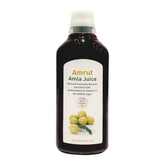
How to treat the common cold at home?
Colds are very common. A visit to your health care provider's office is often not needed, and colds often get better in 3 to 4 days.
A type of germ called a virus causes most colds. There are many types of viruses that can cause a cold. Depending on what virus you have, your symptoms may vary.
Common symptoms of a cold include:
- Fever (100°F [37.7°C] or higher) and chills
- Headache, sore muscles, and fatigue
- Cough
- Nasal symptoms, such as stuffiness, runny nose, yellow or green snot, and sneezing
- Sore throat
Treating Your Cold
Treating your symptoms will not make your cold go away, but will help you feel better. Antibiotics are almost never needed to treat a common cold.
Acetaminophen (Tylenol) and ibuprofen (Advil, Motrin) help lower fever and relieve muscle aches.
- Do not use aspirin.
- Check the label for the proper dose.
- Call your provider if you need to take these medicines more than 4 times per day or for more than 2 or 3 days.
Over-the-counter (OTC) cold and cough medicines may help ease symptoms in adults and older children.
- They are not recommended for children under age 6. Talk to your provider before giving your child OTC cold medicine, which can have serious side effects.
- Coughing is your body's way of getting mucus out of your lungs. So use cough syrups only when your cough becomes too painful.
- Throat lozenges or sprays for your sore throat.
Many cough and cold medicines you buy have more than one medicine inside. Read the labels carefully to make sure you do not take too much of any one medicine. If you take prescription medicines for another health problem, ask your provider which OTC cold medicines are safe for you.
Drink plenty of fluids, get enough sleep, and stay away from secondhand smoke.
Wheezing can be a common symptom of a cold if you have asthma.
- Use your rescue inhaler as prescribed if you are wheezing.
- See your provider immediately if it becomes hard to breathe.
Home Remedies
Many home remedies are popular treatments for the common cold. These include vitamin C, zinc supplements, and Echinacea.
Although not proven to be helpful, most home remedies are safe for most people.
- Some remedies may cause side effects or allergic reactions.
- Certain remedies may change the way other medicines work.
- Talk to your provider before trying any herbs and supplements.
Preventing the Spread of Colds
Wash your hands often. This is the best way to stop the spread of germs.
To wash your hands correctly:
- Rub soap onto wet hands for 20 seconds. Make sure to get under your fingernails. Dry your hands with a clean paper towel and turn faucet off with paper towel.
- You can also use alcohol-based hand sanitizers. Use a dime size amount and rub all over your hands until they are dry.
To further prevent colds:
- Stay home when you are sick.
- Cough or sneeze into a tissue or into the crook of your elbow and not into the air.
When to Call the Doctor
Try treating your cold at home first. Call your provider right away, or go to the emergency room, if you have:
- Difficulty breathing
- Sudden chest pain or abdominal pain
- Sudden dizziness
- Acting strangely
- Severe vomiting that does not go away
Also call your provider if:
- You start acting strangely
- Your symptoms get worse or do not improve after 7 to 10 days


